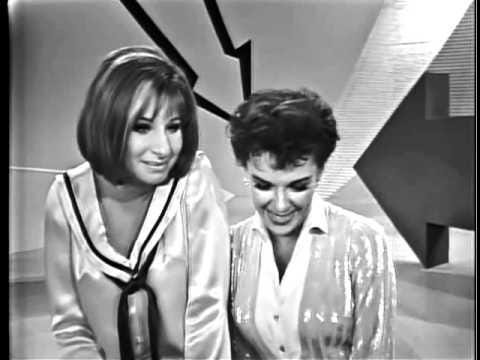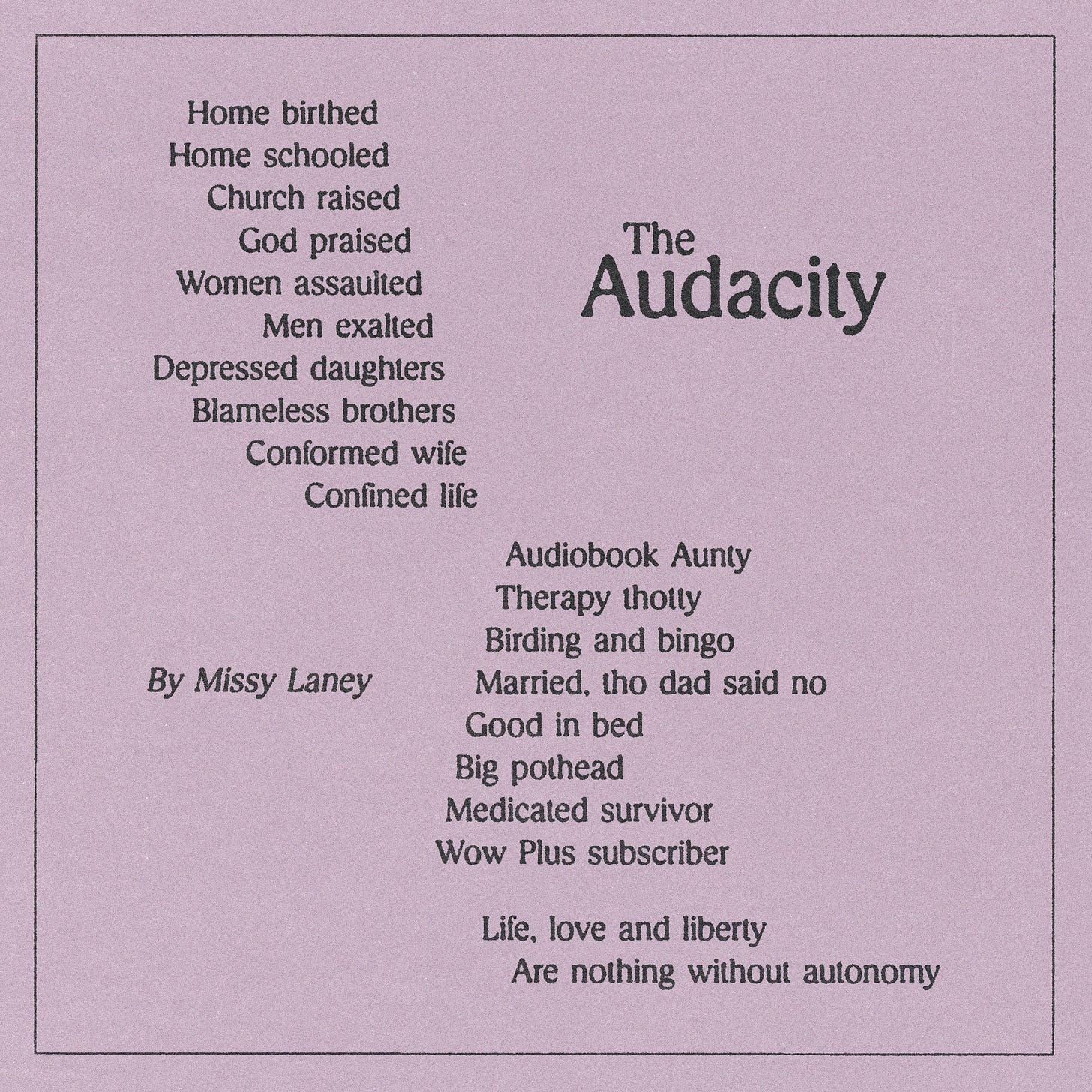I’m slow dancing in the mirror, swaying to the affirming duet “Get Happy/Happy Days Are Here Again” by Barbra Streisand and Judy Garland. I’m wearing a lilac tank top with a sage floor-length prairie skirt covered in white polka dots that I’ve kept on loan from my hometown bff. It covers my strawberry-colored sunburnt legs while allowing some breathing room in this heat. I’ve been listening to Barbra Streisand’s audiobook My Name is Barbra. The memoir is 48 hours long, and I have it on loan via Libby for 20 days. I was delayed in finishing Jeffrey Eugenides Middlesex, so I didn’t start Barbra’s behemoth until I only had 18 days left. After some ‘girl math’, I estimated I needed to listen to 2 hours daily at 1.25x speed to finish in time. This weekend, I got wrapped up listening to Barbra and neglected my marshmallow white legs slowly getting toasted in the sun. Nothing a little ACV can’t remedy.
I’m right between Barbra finishing Funny Girl on Broadway and giving birth to her son Jason, and the start of prepping the movie Funny Girl. The book is rich with details, and like me, Barbra loves coffee ice cream (Mcconnell's brand is her fav), raiseless rice pudding, and brownies only with walnuts. The audiobook, which is read by Babs herself, is seductively immersive with audio clips of the songs and moments she references. I loved hearing the backstory of her 1963 guest appearance on the CBS series, The Judy Garland Show, where she sang the iconic duet with the legendary Judy Garland.
With all this Barbra in my life recently, it’s made me think of another Barabra. If I believed in patron saints, Dr Barbara Francis would be mine. The most asked question I get is how did you get out, usually referring to the fact that most homeschool fundamentalists never “get out of their bubble”.
As a kid, I felt no matter how committed I was to the role of happy Christian daughter, I could not shake the feeling that within my world, I was less lovable. Growing up in a household with only brothers, the stark sexism within the church community seemed only apparent to me. When I was 10 or 11, our church split. One of the head pastors, the one with a brood of daughters, had the “radical” belief that women were capable of leadership. He swiftly got fired. I befriended and deeply loved this family, they introduced me to the world of musical theater, shared their closet of dress-up clothes, and one of the older sisters featured me in their Christian fashion show at Biola University. When the news of the pastor’s firing was announced at church, I wept in the church bathroom. I was crying because when you leave the church, you’re shunned from the community. I was going to miss my friends, but subconsciously, I now wonder if I felt the deeper implications.
My family accepted the leadership’s decision and reinforced the belief that because of my gender, unlike my brothers, my potential was limited. My brother’s futures were full of opportunities, but, being a girl, I had innate limits. I appeared to be a high-achieving youngster, gracious, and polite, but on the inside, I was full of self-loathing.
What holds us back from leaving toxic groupthink is that, often, we are unable to see the trap or bubble we are in. Lauren Hough said it best, “You’re not in a cult until you leave a cult.” I didn’t know I was out until I was able to demystify the invisible trap.
After moving away from the church in my twenties, I was baffled to be still suffering despite my disconnection from the church. I wanted to stop the cycle of pain so I began investigating my past. I first read a book by linguist Amanda Montell titled, Cultish: The Language of Fanaticism. Amanda taught me how language invisibly shapes our culture. Those who left our church before me causally would say, “Hope Chapel is a cult.” Never taking their accusations seriously, suddenly I started to see real similarities between the examples in the book and how my family’s church operated. But, just because a group uses culty language, doesn’t inherently make them abusive.
I kept researching and reading. The Body Keeps the Score by Bessel van der Kolk illuminated how traumatic experiences change the brain. The first half of the book outlines the effects of trauma while the second half spotlights remedies. I learned my depression was a symptom and that made it feel more manageable. I started cognitive therapy and EMDR. I took clowning courses for my anxiety and enrolled in a freehand writing class to help with my depression. This poem effortlessly spilled out of me one day in March 2023.
The more I read, the more I understood my symptoms but understanding isn’t healing medicine alone, and I wanted to know the cause of my symptoms, so I kept looking. Late one April night, I stumbled on Ezzo.info and I found the diagnosis I’d been looking for. I am a first-generation Ezzo baby.
This leads me back to Dr. Barabra Francis — who after witnessing firsthand Gary Ezzo's harmful practices in Growing Kids God’s Way and Babywise, wrote a 22 page report critiquing Ezzo’s methodology and calling for an investigation into his dangerous ministry. Her report explains the cause of my symptoms and outlines the massive global scale at which Ezzo was profiting from child abuse.





